Animal Shelters Urge Humans Confined To Home By Coronavirus Outbreak To Adopt : NPR
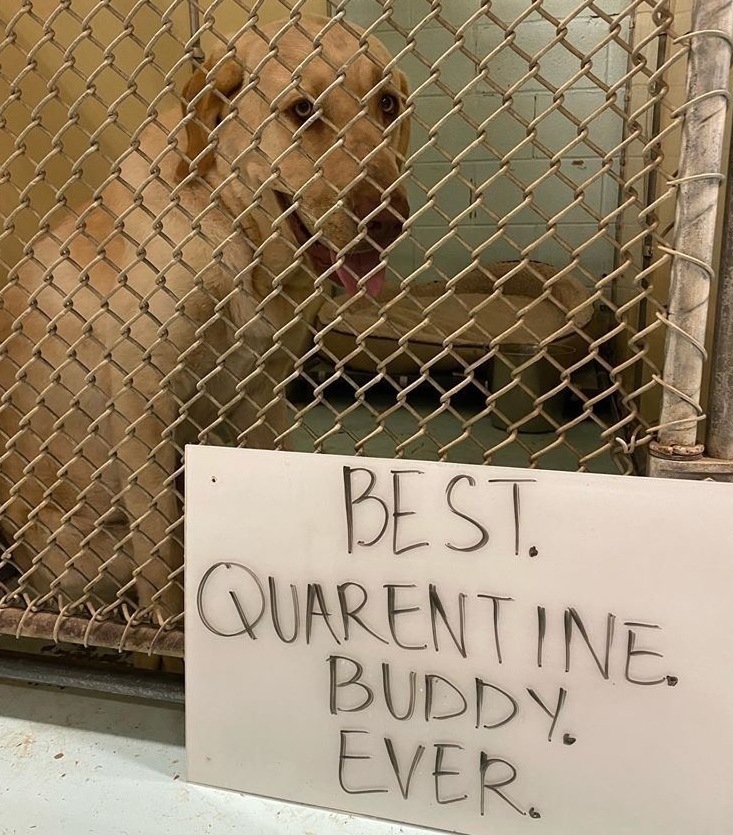
Across the country, the coronavirus has forced many animal shelters into crisis mode. Above, a dogs at the Humane Society of Harlingen, Texas which has since found a home.
Sara Cano/ Humane Society of Harlingen, Texas
hide caption
toggle caption
Sara Cano/ Humane Society of Harlingen, Texas
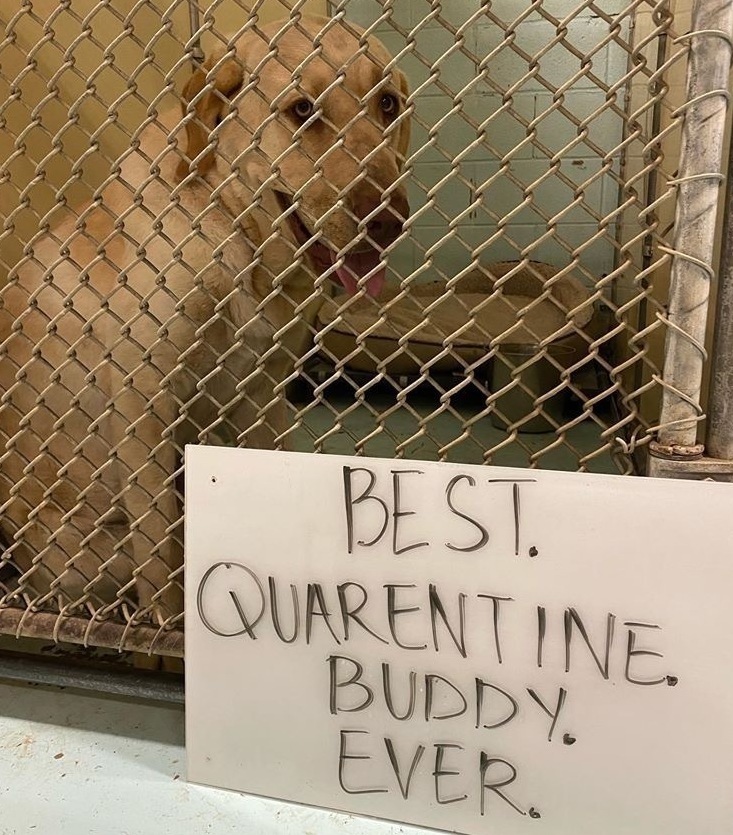
Across the country, the coronavirus has forced many animal shelters into crisis mode. Above, a dogs at the Humane Society of Harlingen, Texas which has since found a home.
Sara Cano/ Humane Society of Harlingen, Texas
Animal shelters across the country have had to close their doors as part of the effort to slow the spread of the coronavirus. Fearing the arrival of new litters and abandoned animals with no one to adopt them, they are racing to empty kennels before they are forced to resort to euthanasia.
“Every industry in the world right now is going through a massive disruption, and animal sheltering and animal rescues are no exception to that,” says Julie Castle, the chief executive officer of Best Friends Animal Society, an advocacy group that works with more than 3,000 shelters.
Many of these shelters have moved into crisis mode.
Using social media, they’ve made pleas to their communities to foster pets until the pandemic is over. Some are live-streaming adoptable animals. Skype meet-and-greets are growing in popularity. There are even drive-through pickups for foster families where staff bring out a pet, give the family a bag of food and then away they go.
In some communities, the response has been overwhelming. Shelters are reporting that a record number of animals have been adopted or fostered since the pandemic began. The Santa Rosa County Animal Shelter in Florida, which in the past has had to euthanize a majority of abandoned pets, this week was able to find homes for nearly all of it animals.
In North Carolina, the Wake County Society for the Prevention of Cruelty to Animals started a live Facebook feed that goes out everyday at 2 p.m. ET. Potential adopters can chat with the camera operator, and ask questions about specific pets. Viewers can also ask the camera operator to give belly rubs, or deliver treats on their behalf.
“We do the adoption conversation the phone,” says Kim Janzen, the president and CEO of the shelter. During the hand off, the new pet owner and staff keep the recommended six-feet distance apart. Janzen says they’ve been able to adopt out more than 130 animals over the last two weeks.
Bracing for a population explosion
Shelters are still caring for animals even though most have closed their doors to the public, says Castle. But as they lay off staff, much of the work — cleaning, feeding and walking — is falling to skeleton crews. Meanwhile, adoption events and fundraisers — the life blood of these non-profits — have been cancelled.
It couldn’t have come at a worse time.
Even before the coronavirus crisis, Luis Quintanilla, the executive director the Humane Society of Harlingen, Texas, was bracing for tough times. March is typically when pregnant animals and litters of unwanted kittens and puppies start showing up.
“It’s really overwhelming for most shelters out there because all these litters start coming in on a daily basis — on an hourly basis sometimes,” Quintanilla says.
Regrettably, he says, when space is severely limited, euthanasia becomes a population control tool to reduce the number of sick animals and to make space for healthy ones.
As soon as it became clear the shelter was going to have to close because of the virus, Quintanilla and his staff went online and started to aggressively market their fostering program. They set up a curbside adoption service so people could stay in their cars.
He was overwhelmed by the response.
“”The healthy adoptable animals are [now] out,” says Quintanilla. “Our reduced staff is able to devote its attention to animals who need more care like those who are injured or sick.”
A time of uncertainty
Castle says shelters are bracing for a repeat of what happened during the 2008 recession. As people lose their jobs and possibly their homes, many will be forced to give up their pets.
Best Friends Animal Society is putting together emergency pet packs that include basic essentials, such as food and treats, to help people keep their pets until they get their jobs back.
For others, a new pet offers offers a way to help ease the isolation that comes with orders to shelter in place. Animals provide company and comfort during times of uncertainty. And being forced to stay home is not only optimal for house training, but it gives humans and their new animals plenty of time to bond.
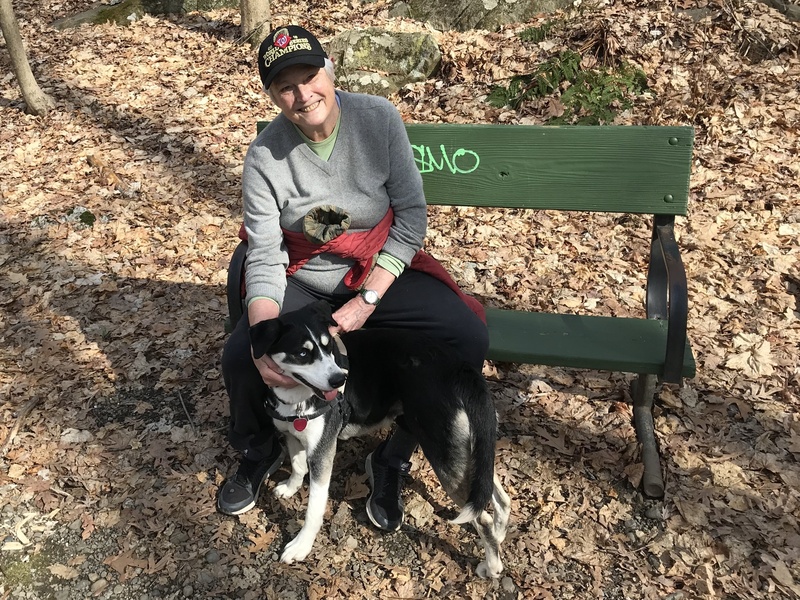
Judy Dollenmayer taking a break on a hike with Willow, a husky-hound mix and the newest member of her family.
Barbara Page
hide caption
toggle caption
Barbara Page
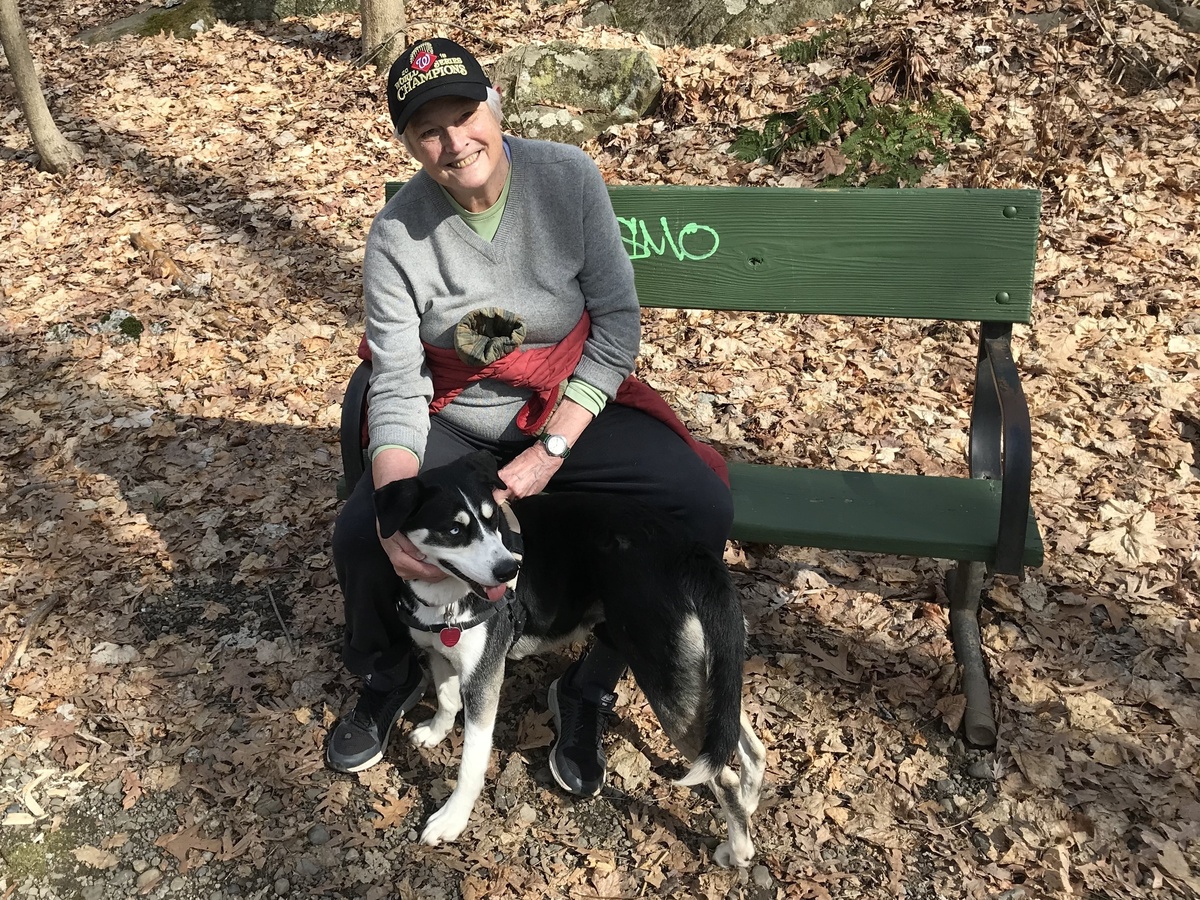
Judy Dollenmayer taking a break on a hike with Willow, a husky-hound mix and the newest member of her family.
Barbara Page
Shelters, in their outreach, have tapped into that.
For Judy Dollenmayer of Poughkeepsie, N.Y., the timing was right.
“At the end of February, it was clear to us that we’d not be traveling for six months or more,” says Dollenmayer. She and her partner saw a photo of “Willow” on an adoption site and immediately sent in an application for the husky-hound mix.
On March 14, practicing social distancing, Dollenmayer waited at a truck depot in Connecticut for a truck carrying about 40 dogs from a shelter in Arkansas.
“It was a joyful occasion with about a dozen other families welcoming their new dogs or fosters,” she says. “Willow has already settled into our house, and hearts.”
Their new family member is also giving Dollenmayer a great reason to get out of the house and take long walks during the shut down. “It’s more fun,” she says “than the 2,000 piece jigsaw puzzle on our dining table.”

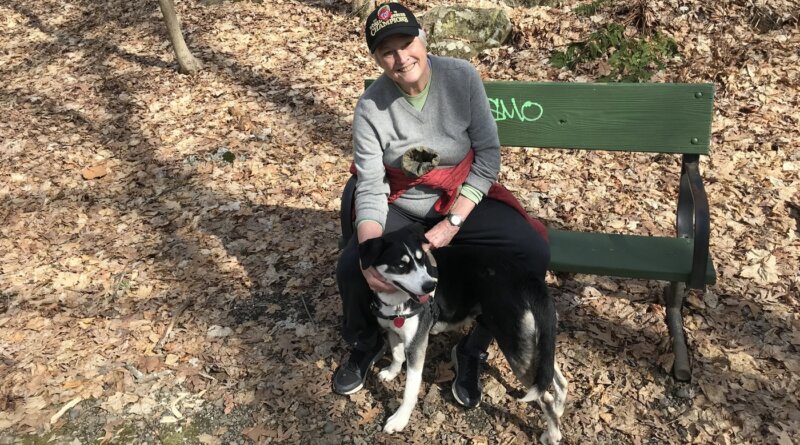

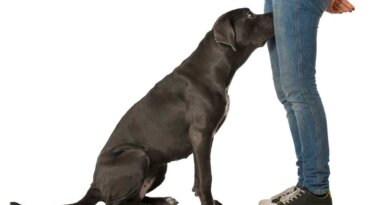

Everything is very open and very clear explanation of issues. was truly information.